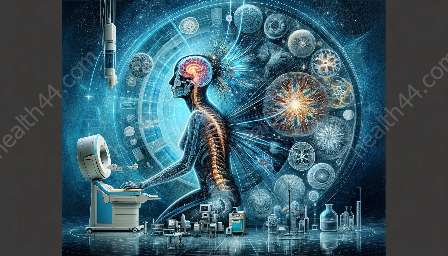Radiobiological models play a crucial role in the field of radiation therapy, influencing treatment planning and patient outcomes. Understanding the use of these models and their impact on treatment efficacy is essential for healthcare professionals working in radiobiology and radiology.
Radiobiology and Radiology
Radiobiology is the study of the action of ionizing radiation on living organisms, with a focus on the biological effects of radiation. Radiology, on the other hand, is the medical specialty that uses medical imaging to diagnose and treat diseases within the body. While radiobiology deals with the biological aspects of radiation, radiology focuses on the clinical application of various imaging techniques, including radiation-based modalities such as X-rays, CT scans, and MRI.
These two fields are closely related, as advances in radiobiology directly impact the practice of radiology, particularly in the context of radiation therapy.
Understanding Radiobiological Models
Radiobiological models are mathematical and computational tools used to predict the biological effects of ionizing radiation on tumors and normal tissues. They provide valuable insights into the dose-response relationships and help estimate the likelihood of tumor control and normal tissue complications following radiation treatment.
These models incorporate factors such as the radiation dose, dose fractionation, overall treatment time, and the biology of the specific tissues being irradiated. By simulating the biological response to radiation, radiobiological models aid in optimizing treatment plans to maximize tumor control while minimizing damage to healthy tissues.
Assessing Treatment Outcomes
The use of radiobiological models allows healthcare professionals to assess and predict treatment outcomes more accurately. By considering the unique biological characteristics of individual tumors and normal tissues, these models provide personalized insights into the expected response to radiation therapy.
Furthermore, radiobiological models help in evaluating the potential benefits and risks of alternative treatment regimens. They enable clinicians to make informed decisions regarding dose prescriptions, fractionation schedules, and the overall treatment strategy to achieve the best possible outcomes for patients.
Impact on Treatment Planning
Radiobiological models influence various aspects of treatment planning, including target volume definition, dose escalation, and organ-at-risk sparing. With the ability to predict tumor response and normal tissue toxicity, these models guide the selection of appropriate radiation dose and fractionation schemes to optimize treatment efficacy while minimizing side effects.
Integrating radiobiological modeling into treatment planning platforms enhances the precision and individualization of radiation therapy, leading to improved patient care and outcomes. It allows for the tailoring of treatment strategies based on the unique radiobiological properties of each patient's cancer, ultimately contributing to better therapeutic results.
Advancements in Radiobiological Modeling
Ongoing research and technological advancements continue to refine radiobiological models, making them more sophisticated and clinically relevant. Incorporating factors such as tumor heterogeneity, genetic profiles, and immune responses into these models enhances their predictive accuracy and expands their applicability to emerging treatment modalities, such as immunotherapy and targeted radiation therapy.
As radiobiological modeling evolves, it further strengthens the foundation of evidence-based radiation oncology, empowering healthcare providers to deliver more precise and personalized cancer treatments.
Conclusion
Radiobiological models serve as indispensable tools in the assessment of treatment outcomes in radiation therapy. Their integration into the practice of radiobiology and radiology enhances the understanding of radiation effects on biological systems and helps optimize treatment planning for improved patient care. As these models continue to advance, they hold the potential to revolutionize the field of radiation oncology, offering new avenues for tailoring cancer therapies to individual patients.


